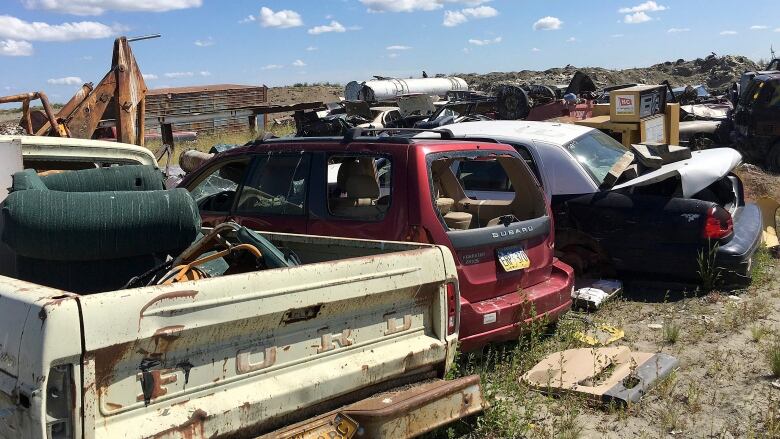Alaska town bans longtime practice of scavenging at dump
'This is about safety of people and risk responsibility of the city,' says Bethel city manager

A decades-long tradition has come to an abrupt end in one of Alaska's largest rural hubs with a ban on the popular practice of scavenging at the city landfill -- or "shopping" as some locals call it.
The recent clampdown in Bethel comes amid concerns that dangerous conditions at the dump were creating a liability for the community of 6,200, City Manager Ann Capela said.
"To me, this is about safety of people and risk responsibility of the city," said Capela, who served as a public administrator in many other states before moving to the western Alaska town in late 2014. "Once the city takes possession of the various things that people throw away, the city becomes the owner."
Bethel, about 640 kilometreswest of Anchorage, is off the state's limited road system and has no major stores. Over the years, many residents have turned to the landfill for such goods as car parts, motors, and wood for burning or construction.

When Tom McCallson first moved to Bethel in the mid-1980s, even a spare nut and bolt had value, he said.
But the dump offers even more valuable items, such as the brand-new, working dishwasher his son once found.
McCallson goes to the landfill when he needs something specific, and doesn't consider himself a full-time scavenger. He usually finds what he's looking for.
"A person that is actively going in there could probably build a house out of the stuff that goes in there," McCallson said.
Potential for injury
Landfill experts in the Lower 48 say letting people wander around freely at U.S. landfills is a practice that harkens to another time. Today, it is a rare exception in an industry that has been highly regulated for decades. There's just too much potential for people to get cut by something protruding from the ground, pricked by a discarded needle, run over or hurt some other way.
"While scavenging is fairly common at developing-world dump sites, it is exceeding rare at modern American sanitary landfills. I am pleased that Bethel is banning this practice," David Biderman, executive director of the Solid Waste Association of North America, said Wednesday in an email to The Associated Press.

To McCallson, the change implemented about a month ago is irritating because scavenging has been so convenient. Many locals even jokingly refer to the dump as the shopping center.
Word around town is that some locals are sneaking in over a berm after the landfill gate is closed at night. McCallson said only about 300 feet of the perimeter is surrounded by a chain-link fence.
New policy could be short-lived
Bethel landfill manager David Stovner said he's never heard of anyone getting hurt while scavenging. He said he doesn't totally agree with the new policy, but he is turning people away because that's his job. He's also been told to order a sign noting people are entering the landfill at their own risk.
"I'm pretty easygoing, you know, but the powers that be are in charge, and I'm going to do what they tell me to do," he said.
Capela is leaving her position in late September, so in reality, the new policy could be short-lived.
Meanwhile, Capela said the city is considering following a process carried out for some public landfills, such as the one operated by the Fairbanks North Star Borough. The borough runs 14 transfer stations, including five with a designated area where people can drop off usable items for others to take.
"We want to create a safer environment," she said.












_(720p).jpg)


 OFFICIAL HD MUSIC VIDEO.jpg)
.jpg)



























































































